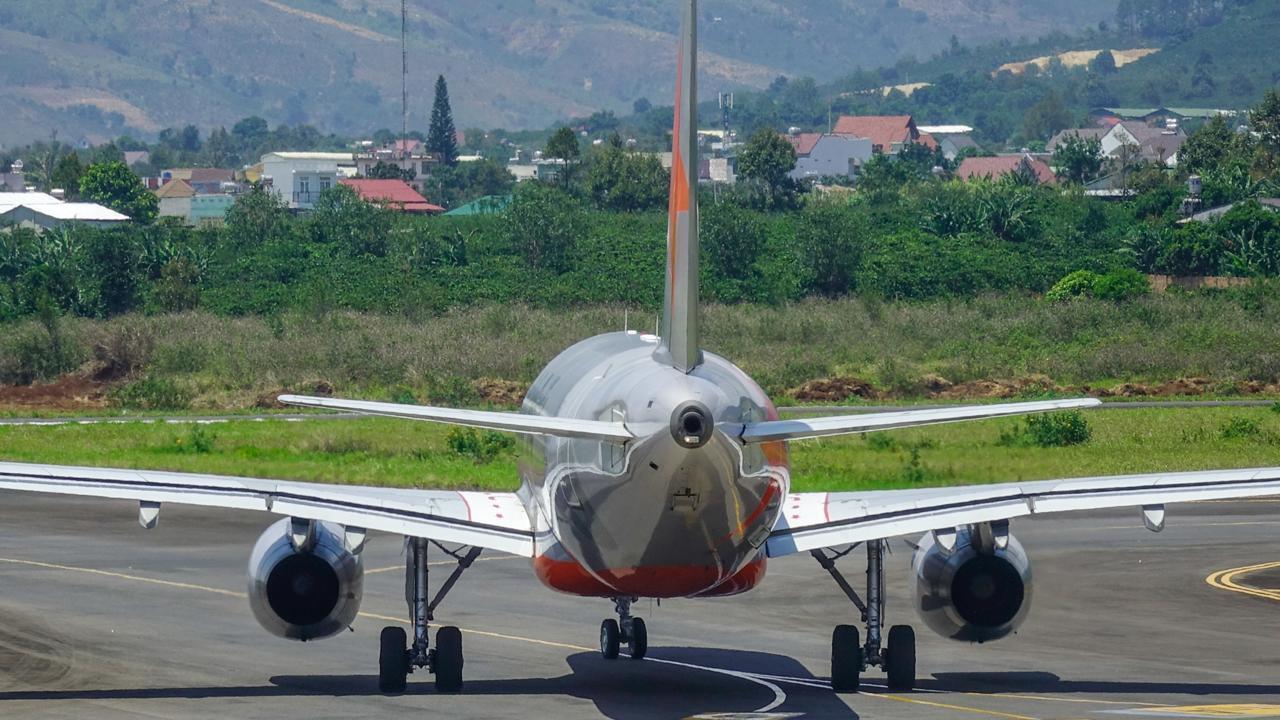
Post by : Amit
A Green Shift in Aviation
In a significant move towards sustainable aviation, Vietnamese carrier VietJet and India's flagship airline Air India have independently entered into agreements with domestic energy providers to secure future supplies of sustainable aviation fuel (SAF). These initiatives underscore a growing regional interest in building local SAF supply chains, aligning with global efforts to reduce aviation's carbon footprint.
VietJet's Commitment to Sustainable Aviation
VietJet has committed to purchasing its first 1,200 cubic meters (approximately 317,000 gallons) of SAF from Petrolimex, a leading energy company in Vietnam. This agreement marks a pivotal step in VietJet's journey towards integrating SAF into its operations, aiming to enhance fuel efficiency and reduce greenhouse gas emissions.
The partnership with Petrolimex signifies a strategic move to establish a local SAF supply chain, reducing dependency on international fuel sources and mitigating supply chain risks. By sourcing SAF domestically, VietJet not only supports national energy security but also contributes to the development of green technologies and job creation within the energy sector.
This commitment aligns with VietJet's broader sustainability goals, reflecting a proactive approach to environmental stewardship in the aviation industry.
Air India's SAF Initiative
Similarly, Air India has initiated discussions with domestic energy providers to secure a steady supply of SAF. While specific details of the agreements are yet to be disclosed, this move aligns with Air India's broader strategy to modernize its fleet and adopt more sustainable practices in line with global aviation trends.
The adoption of SAF is a critical component of Air India's sustainability roadmap, aiming to reduce the airline's carbon footprint and contribute to India's national goals for carbon neutrality. By investing in SAF, Air India demonstrates its commitment to environmental responsibility and positions itself as a leader in sustainable aviation in the region.
The Importance of Domestic SAF Supply Chains
The establishment of domestic SAF supply chains is crucial for the aviation industry, particularly in regions like Southeast Asia and South Asia. By sourcing SAF locally, airlines can mitigate supply chain risks, reduce costs associated with fuel transportation, and contribute to national energy security.
Moreover, local production of SAF supports the development of green technologies and job creation within the energy sector. This holistic approach not only benefits airlines but also stimulates economic growth and technological advancement in the region.
The initiatives by VietJet and Air India serve as exemplary models for other carriers in the region, highlighting the feasibility and benefits of integrating SAF into operations.
Challenges in SAF Adoption
Despite the promising developments, the widespread adoption of SAF faces several challenges. These include the high production costs of SAF compared to conventional jet fuel, limited production capacity, and the need for regulatory frameworks to support SAF integration into existing aviation infrastructure.
Overcoming these hurdles requires collaborative efforts between airlines, energy providers, and governments. Investment in research and development, along with supportive policies and incentives, will be essential to accelerate the transition to SAF and achieve long-term sustainability goals.
Global Trends in SAF Adoption
The initiatives by VietJet and Air India are part of a broader global trend towards SAF adoption. Airlines worldwide are exploring sustainable fuel options to meet environmental targets and regulatory requirements.
For instance, European carriers have been at the forefront of SAF usage, with several airlines incorporating SAF into their operations on a commercial scale. Similarly, in the United States, major airlines are investing in SAF production and procurement to reduce their carbon footprints.
These global efforts underscore the aviation industry's commitment to sustainability and the importance of adopting innovative solutions to address environmental challenges.
The Future Outlook
Looking ahead, the success of VietJet and Air India's SAF initiatives could serve as models for other airlines in the region. By demonstrating the feasibility and benefits of SAF adoption, these carriers can encourage industry-wide shifts towards more sustainable aviation practices.
Continued investment in SAF production, infrastructure development, and policy support will be essential to accelerate the transition to greener aviation. Collaboration among stakeholders will play a pivotal role in overcoming existing challenges and achieving the shared goal of a sustainable aviation industry.
A Step Towards Sustainable Aviation
The agreements between VietJet, Air India, and their respective domestic energy providers represent a significant step towards sustainable aviation in Southeast Asia and South Asia. As these initiatives unfold, they highlight the critical role of local supply chains in achieving global sustainability goals.
The aviation industry's commitment to SAF adoption will be pivotal in shaping a greener, more sustainable future for air travel. Through continued collaboration and innovation, airlines can contribute to environmental preservation while meeting the growing demand for air transportation.
VietJet, Air India










Bengaluru-Mumbai Superfast Train Approved After 30-Year Wait
Railways approves new superfast train connecting Bengaluru and Mumbai, ending a 30-year demand, easi

Canada Post Workers Strike Halts Nationwide Mail and Parcel Services
Canada Post halts operations as CUPW strike disrupts mail and parcel delivery nationwide amid disput

PM Modi Launches BSNL ‘Swadeshi’ 4G Network, 97,500 Towers Built
India enters global telecom league as PM Modi inaugurates BSNL’s indigenous 4G, connecting 26,700 vi

India’s Iconic MiG‑21 Takes Final Flight After Six Decades of Service
After 60 years India retires its MiG‑21 fighter jet, a legendary yet controversial warplane marking

Hindustan Zinc unveils AI hotspot monitoring at Debari smelter
Hindustan Zinc launches AI-powered Switchyard Hotspot Monitoring at Debari smelter to cut outages bo

Chinese experts worked inside sanctioned Russian drone plant
Chinese drone specialists visited IEMZ Kupol supplying parts and drones via intermediaries, deepenin